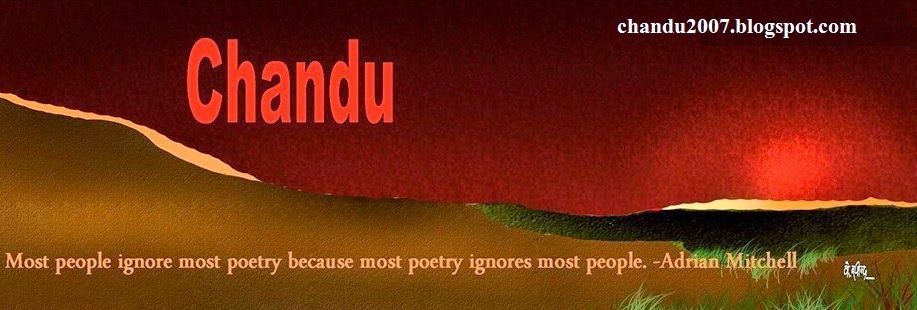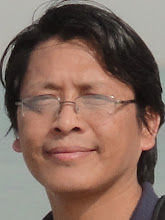Excerpt of the article by Bhushita Vasistha from City Post dated January 29, 2008 (Tuesday)
(Nepali literature has always been of one or the other movements. Starting from the Moti Mandali movement of Moti Ram Bhatta, it led to the Jharrobaad of Tara Nath Sharma. Simultaneously, the 1960s’ Aayameli Abhiyaan of Indra Bahadur Rai, Bairagi Kainla and Ishwar Ballabh bloomed, leading to the underground Boot Paalis and Ashvikrit Jamaat bohemianism spearheaded by Shailendra Sakar, Dhruba Sapkota and Ramesh Shrestha in the 1970s. The recent is the Shrijanshil Arajakta, to name only a few, which have mushroomed and sustained themselves. The one in the list is Rangabaad. The Rangabaadi Movement necessarily originated from the eastern hills of Nepal and is shouldered by the youths and poets of the same regions. Yet the effect of the movement is nationwide. The active members of Rangabaad movement are Dharmendra Bikram Nembang,Chandra Bir Tumbapo, Seema Avash, Swargiya Swapnil Smriti, Prakash Bimil and Amar Neupane.)
The writers/poets who conceived of this movement are all set to deny any sort of “geniusness” in their writing. “We don’t believe in anything like genius as we don’t believe in most other things, either. Nothing absolute exists in the world. Thus, all beliefs become orthodox in course of time,” explained Dharmendra Bikram Nembang, expounder of the Rangbaadi Movement. “The Universe is a relative manifestation of light and shades. Therefore, the cosmos is relativity, and relativity is a variation in the degree of light or colors,” the Rangabaadi message is quite clear.
The movement that suggests the sentiments of the deconstructionists began in 2004. When Nepal was in the thick of conflict and violence, Rangabaad, a brainchild of Nembang, registered itself as a literary movement through his book Bhiraibhir ko Ranga, which often is considered the manifesto of the movement. Initially, it was called Bishesh Rangabaad. However dynamic as their movement is, in five years they have nevertheless amended their manifesto for the third time, each time adding or subtracting some elements. “And we haven’t come to any conclusion yet. Life is a continuous flux, and we’re ready to amend ourselves, rather than be stagnant,” said Chandra Bir Tumbapo, one of the six active Rangabaadi poets.
“The movement has breathed a new life into Nepali literature. It rebels against the idea of reading poems just as a means of attaining academic merits. Since most of the poems of this school are complex and anarchist, one is bound to read the corpus as an insightful interpretation of life, which, though beautiful, is not always understandable,” shared Dr. Govinda Bhattarai. In other words Rangabaadi poems are almost performing art. To bring the desired effects, the poets play with the words in as much as to manicure a piece into the shape of the meaning. That is to say, sometimes when a poet is writing about rains, it is very probable that the poet might drop the words like raindrops.
The main essence of Rangabaad is its belief in total deconstruction of the static. Influenced by the Platonic School of thought, they believe the visible world is the imperfect imitation of the real. Therefore, poems should be imitated and re-imitated. Even though this does not make them perfect, one nevertheless can always aspire to take them onto the path of perfection.
One of the most interesting aspects of this movement is that it has totally denied the existence of singular or even dual. “The world is a part of multiversity; therefore, it is foolish to confine it to one or two,” Chandrabir says. This is why the first page of their book starts with the last page number and ends on the third page, just as, in their own words, the Multiverse-as opposed to the Universe-functions.





